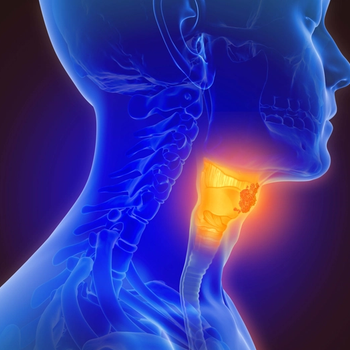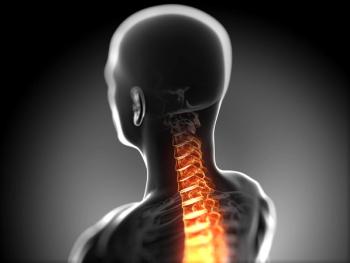
Oncology NEWS International
- Oncology NEWS International Vol 16 No 5
- Volume 16
- Issue 5
Cetuximab Does Not Increase Mucositis in H&N Cancer
In contrast to other radiosensitizers, cetuximab (Erbitux) improves radiotherapy efficacy in patients with locoregionally advanced head and neck cancer without increasing mucositis or dysphagia, and this may translate into fewer treatment breaks and longer survival
RANCHO MIRAGE, CaliforniaIn contrast to other radiosensitizers, cetuximab (Erbitux) improves radiotherapy efficacy in patients with locoregionally advanced head and neck cancer without increasing mucositis or dysphagia, and this may translate into fewer treatment breaks and longer survival, James A. Bonner, MD, of the University of Alabama at Birmingham, reported at the Multidisciplinary Head and Neck Cancer Symposium (abstract 4). "This is an important finding, as these toxicities can be the most debilitating toxicities for patients during a course of radiotherapy and can lead to detrimental breaks in treatment," Dr. Bonner said.
This toxicity and outcomes analysis was undertaken to characterize the duration of mucositis and dysphagia on both arms of a phase III comparison of primary radiotherapy with and without concomitant cetuximab, which had previously shown a survival advantage for patients who received cetuximab in addition to radiotherapy for locoregionally advanced head and neck cancer (Bonner et al: N Engl J Med 354:567-578, 2006).
"Cetuximab in combination with radiotherapy caused clinically significant radiosensitization, as exemplified by a significant improvement in locoregional control. This improvement was associated with a significant improvement in survival," Dr. Bonner told ONI.
The 424 patients received curative radiotherapy of greater than 70 Gy through once-daily or altered fractionation regimens. Those randomized to cetuximab (n = 211) also received a cetuximab loading dose of 400 mg/m2 on week 1, followed by seven weekly infusions of 250 mg/m2. Dr. Bonner reported toxicity data for 420 of 424 patients, with median follow-up time of 54 months.
Median duration of any mucositis or dysphagia was 12 to 13 weeks: 28% of patients had mucositis for 12 to 13 weeks; 31.5% had dysphagia for 12 to 13 weeks. Patients had the same rates and degree of mucositis and dysphagia with or without cetuximab. Severe, prolonged toxicity was rare: 1.3% of patients had grade 3-4 mucositis for more than 15 weeks, and 1.7% had grade 3-4 dysphagia for more than 15 weeks. "These data suggest that patients treated with cetuximab and radiotherapy are likely to resume oral intake at a rate similar to patients treated with radiotherapy alone," he concluded.
Articles in this issue
almost 19 years ago
Escalating Drug Costs Could Provoke Consumer Backlashalmost 19 years ago
Large Study Casts Doubt on Value of CADalmost 19 years ago
2004 Update Shows Continued Lower Breast Ca Incidencealmost 19 years ago
Reclast Single-Dose Infusion Approved for Paget's Diseasealmost 19 years ago
Fragmin Approved for VTE in Cancer Ptsalmost 19 years ago
New Phase III Trial of Genasense in Advanced Melanoma Plannedalmost 19 years ago
Cervical Cancer Vaccines Show Sustained Protectionalmost 19 years ago
The 'New' Medicare: Passive Payer No More; PQRI Is First Stepalmost 19 years ago
ONI Reader Poll OnlineNewsletter
Stay up to date on recent advances in the multidisciplinary approach to cancer.












































